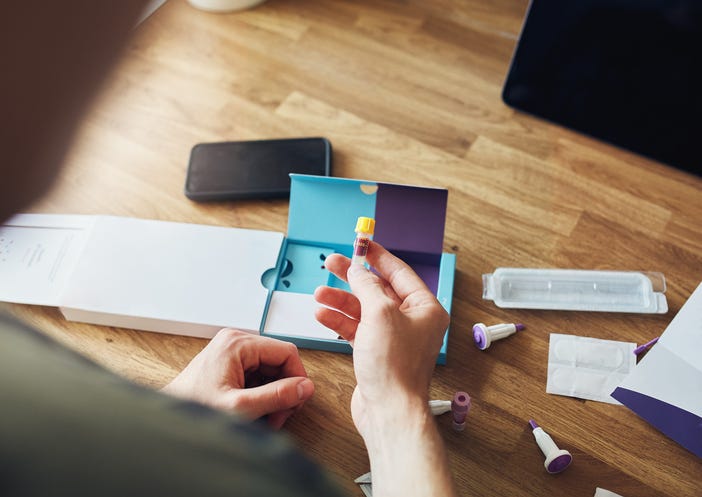
An Australian company that makes at-home COVID-19 tests has recalled nearly 200,000 of them because of its concerns that they give false-positive results.
While the company, Ellume, has recalled the tests because it was concerned about its higher-than-expected rate of false positives, it only represents 5.6% of its almost 3.5 million tests shipped to the U.S.
The company’s CEO Dr. Sean Parsons said it detected the problem in mid-September, and it traced the issue to variations in the quality of materials used in the kits. However, he did not share what specific material was in question because he didn’t want to share publicly how the test kits work, the Seattle Times reported.
“I’m very sorry that this has happened,” Parsons said. “We’re all about chasing accuracy, and to have these false positives is disappointing.”
There were almost 427,000 test kits affected, including some provided to the U.S. Department of Defense, Parsons told the Times. He also said that half of the tests have already been used, giving almost 42,000 positive results.
Parsons estimated that as many as one-quarter of those positive tests may not have been accurate, but he added it would not be easy to determine precisely how many.
The test that Ellume makes is a rapid antigen test designed to detect pieces of the virus in the nose, but the issue did not affect all of the tests.
Now the company has requested that retailers take the tests off their shelves, and it is also reaching out to its consumers, Parsons shared with the times.
A new test can be requested online for those who have purchased and been affected by the recalled tests. In addition, if someone who has a test that is affected tries to use it, they will be notified through the Ellume test app that users use to get results.
“It really won’t be possible to use any of those tests now,” Parsons said.
Now, Parsons shared that the company will make sure “extra controls” are put in place to prevent the same problem from happening again.
“We are doing everything possible to get known, good product into the hands of consumers in the U.S.,” Parsons said.



